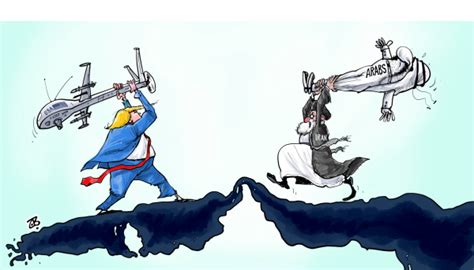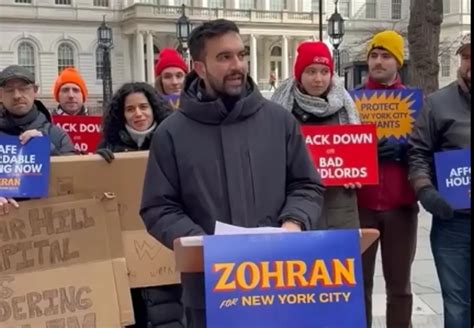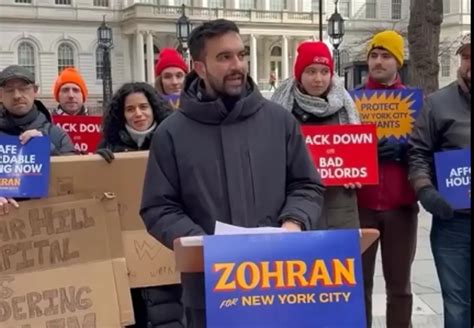
Retaliation from Iran against Israel is considered “almost certain” by U.S. intelligence and regional experts, following the strike on the Iranian consulate in Damascus, Syria, which killed several high-ranking Iranian military officials, including Mohammad Reza Zahedi, a senior commander in the Islamic Revolutionary Guard Corps (IRGC) Quds Force. The timing, location, and method of the anticipated Iranian response remain uncertain, but analysts suggest a multi-pronged approach involving direct action, proxy attacks, and cyber warfare is possible. The potential for escalation and regional instability is high as the U.S. and its allies brace for the repercussions.
U.S. officials are on high alert, anticipating a response that could range from limited strikes to a more extensive campaign designed to inflict significant damage. The killing of Zahedi, a key figure in Iran’s regional operations, has significantly raised the stakes, prompting vows of revenge from Tehran. While Iran’s leaders are under pressure to demonstrate strength, they also likely seek to avoid a full-blown war with Israel and the United States.
Heightened Tensions and Strategic Considerations
The attack on the Iranian consulate in Damascus on April 1st, which Iran has blamed on Israel, has dramatically escalated tensions in an already volatile region. The strike eliminated a key node in Iran’s regional network, disrupting its ability to coordinate and support its proxies across Syria and Lebanon. Mohammad Reza Zahedi, the slain commander, was reportedly responsible for coordinating Iranian support for Hezbollah and other militant groups. His death represents a significant blow to Iran’s operational capabilities and strategic influence.
“They have to respond,” said Raz Zimmt, a senior researcher at the Institute for National Security Studies in Tel Aviv. “The question is how they respond. I think that the Iranians are now busy trying to find this balance between a response that would be significant enough but would not drag them into a full-blown war with Israel and potentially with the U.S.”
The potential scenarios for Iranian retaliation are varied and complex. Experts believe Iran could opt for a direct military strike against Israeli targets, a strategy that carries the risk of immediate and forceful counter-retaliation. Alternatively, Iran could choose to activate its network of proxies in the region, including Hezbollah in Lebanon, Hamas in Gaza, and various militias in Syria and Iraq, to launch attacks against Israeli and U.S. interests. A third option involves cyberattacks targeting critical infrastructure and government systems.
Possible Scenarios for Iranian Retaliation
-
Direct Military Strike: This scenario involves Iran directly targeting Israel with missiles or drones. While this would send a powerful message, it also carries the highest risk of triggering a wider conflict. Iran would likely target military installations or strategic infrastructure in an attempt to inflict maximum damage.
-
Proxy Attacks: Iran could utilize its network of proxies to carry out attacks against Israeli or U.S. targets. This approach would allow Iran to maintain a degree of deniability and avoid direct confrontation. Hezbollah, with its vast arsenal of rockets and missiles, is a particularly potent threat. Other proxies, such as Hamas and militias in Syria and Iraq, could also be used to launch attacks.
-
Cyber Warfare: Iran has demonstrated increasing capabilities in cyber warfare. It could launch cyberattacks against Israeli infrastructure, government systems, or financial institutions in an attempt to disrupt daily life and inflict economic damage.
-
A Combination of Approaches: The most likely scenario is a combination of these approaches. Iran could launch limited direct strikes while simultaneously activating its proxies to carry out attacks on multiple fronts. This would create a complex and challenging situation for Israel and the United States.
U.S. Response and Diplomatic Efforts
The United States has reiterated its unwavering commitment to Israel’s security and has warned Iran against escalating the situation. U.S. officials have been in close contact with their Israeli counterparts to coordinate security measures and develop contingency plans. The U.S. military has also increased its presence in the region to deter Iranian aggression and provide support to its allies.
“We have made it clear to Iran that we will defend our personnel and our interests in the region,” said a senior U.S. official. “We are prepared to respond decisively if Iran takes any action that threatens our people or our allies.”
Diplomatic efforts are also underway to de-escalate the situation. The United States is working with regional partners, including Egypt and Jordan, to encourage restraint and prevent further escalation. However, the prospects for a diplomatic solution remain uncertain given the depth of the animosity between Iran and Israel.
The Role of Hezbollah
Hezbollah, the powerful Lebanese Shiite group backed by Iran, is a key player in the current crisis. With its extensive arsenal of rockets and missiles, Hezbollah poses a significant threat to Israel. Hezbollah could launch attacks against Israeli cities and military installations, potentially overwhelming Israel’s air defenses.
“Hezbollah is the most capable and well-equipped non-state actor in the world,” said a military analyst. “It has the ability to inflict significant damage on Israel.”
The involvement of Hezbollah in any Iranian retaliation would significantly escalate the conflict and increase the risk of a wider regional war. Israel has warned Hezbollah against any attacks and has threatened to respond with overwhelming force.
Impact on Regional Stability
The current crisis threatens to further destabilize an already volatile region. The conflict in Syria, the ongoing tensions in Iraq, and the war in Yemen have created a complex and dangerous security environment. An escalation between Iran and Israel could trigger a wider regional war, drawing in other countries and non-state actors.
The economic consequences of a regional war would be devastating. Oil prices would likely spike, disrupting global markets. Trade routes would be disrupted, and economies would be severely damaged. The humanitarian consequences would also be severe, with millions of people potentially displaced or killed.
Iran’s Motivations and Strategic Goals
Understanding Iran’s motivations and strategic goals is crucial to assessing the potential for escalation. Iran’s leaders are driven by a combination of factors, including a desire to protect their regime, project power in the region, and challenge the United States and its allies.
Iran views Israel as a major obstacle to its regional ambitions and a key ally of the United States. Iran’s leaders believe that weakening Israel would strengthen their own position and allow them to expand their influence in the region.
However, Iran’s leaders are also aware of the risks of a full-blown war with Israel and the United States. They likely seek to calibrate their response to the attack in Damascus in a way that demonstrates strength and resolve without triggering a wider conflict that could threaten their regime’s survival.
The Broader Geopolitical Context
The current crisis is unfolding against a backdrop of broader geopolitical tensions. The United States and Iran have been engaged in a long-standing rivalry, with competing interests in the Middle East. The collapse of the Iran nuclear deal has further exacerbated tensions, with Iran advancing its nuclear program and the United States reimposing sanctions.
Russia’s invasion of Ukraine has also had a significant impact on the geopolitical landscape. The war has diverted the attention of the United States and its allies and has created new opportunities for Iran to expand its influence.
Challenges for Israel
Israel faces significant challenges in responding to the potential Iranian retaliation. Israel must balance the need to deter further Iranian aggression with the desire to avoid a wider conflict. Israel’s military is highly capable, but it could be overwhelmed by a multi-front attack involving Iran, Hezbollah, and other proxies.
Israel’s air defenses are among the most advanced in the world, but they are not impenetrable. Iran and Hezbollah possess a large arsenal of rockets and missiles that could overwhelm Israel’s air defenses, particularly in a sustained attack.
Israel also faces the challenge of maintaining public support for a prolonged conflict. The Israeli public is war-weary after years of conflict with the Palestinians and Hezbollah. A wider regional war could strain Israel’s economy and society.
FAQ Section
Q1: Why is Iran expected to retaliate against Israel?
A: Iran is widely expected to retaliate following the strike on its consulate in Damascus, Syria, which resulted in the death of several high-ranking Iranian military officials, including Mohammad Reza Zahedi, a senior commander in the IRGC Quds Force. Iran views the attack as a direct assault on its sovereignty and a significant blow to its regional influence, prompting vows of revenge. “They have to respond,” said Raz Zimmt, a senior researcher at the Institute for National Security Studies in Tel Aviv, highlighting the pressure on Iran to demonstrate strength.
Q2: What are the possible ways Iran might retaliate?
A: Iran has several options for retaliation. These include:
- Direct Military Strike: Launching missiles or drones directly at Israeli targets.
- Proxy Attacks: Utilizing its network of proxies like Hezbollah in Lebanon, Hamas in Gaza, and militias in Syria and Iraq to attack Israeli and U.S. interests.
- Cyber Warfare: Conducting cyberattacks on Israeli infrastructure, government systems, or financial institutions.
- Combination of Approaches: Employing a mix of direct and proxy attacks, along with cyber warfare, to create a complex and challenging situation.
The choice will likely depend on Iran’s assessment of the risks and rewards of each option, as well as its strategic goals.
Q3: What is the United States’ role in the current situation?
A: The United States has reaffirmed its commitment to Israel’s security and has warned Iran against escalating the situation. U.S. officials are in close contact with their Israeli counterparts to coordinate security measures and develop contingency plans. The U.S. military has also increased its presence in the region to deter Iranian aggression and provide support to its allies. According to a senior U.S. official, “We have made it clear to Iran that we will defend our personnel and our interests in the region. We are prepared to respond decisively if Iran takes any action that threatens our people or our allies.” The U.S. is also engaged in diplomatic efforts to de-escalate tensions.
Q4: How could Hezbollah be involved in Iran’s retaliation?
A: Hezbollah, the Lebanese Shiite group backed by Iran, is a significant threat to Israel. With its substantial arsenal of rockets and missiles, Hezbollah could launch attacks against Israeli cities and military installations. As one military analyst noted, “Hezbollah is the most capable and well-equipped non-state actor in the world. It has the ability to inflict significant damage on Israel.” The involvement of Hezbollah could significantly escalate the conflict into a wider regional war.
Q5: What is the potential impact of this conflict on regional stability?
A: The current crisis threatens to further destabilize an already volatile region. Escalation between Iran and Israel could trigger a wider regional war, drawing in other countries and non-state actors. The economic consequences could be severe, with oil prices spiking and trade routes disrupted. The humanitarian consequences would also be dire, potentially leading to mass displacement and casualties. The ongoing conflicts in Syria, Iraq, and Yemen contribute to the instability, making the region particularly vulnerable to further escalation.
Expanded Analysis and Background
The escalating tensions between Iran and Israel reflect a long history of animosity and proxy conflicts. The two countries have been engaged in a shadow war for years, with Iran supporting militant groups that target Israel and Israel conducting covert operations against Iranian nuclear and military facilities. The attack on the Iranian consulate in Damascus represents a significant escalation of this conflict, bringing the two countries closer to direct confrontation.
The death of Mohammad Reza Zahedi is particularly significant. Zahedi was a key figure in Iran’s regional operations, responsible for coordinating support for Hezbollah and other militant groups. His elimination disrupts Iran’s ability to project power in the region and weakens its network of proxies.
Iran’s response to the attack will be carefully calibrated. While Iran’s leaders are under pressure to demonstrate strength and avenge Zahedi’s death, they also likely seek to avoid a full-blown war with Israel and the United States. A full-scale conflict could have devastating consequences for Iran, potentially leading to widespread destruction and regime change.
The potential for miscalculation is high. Both Iran and Israel have demonstrated a willingness to take risks, and a misstep by either side could easily trigger a wider conflict. The United States is working to de-escalate tensions, but its ability to influence events is limited.
The current crisis highlights the dangers of the ongoing shadow war between Iran and Israel. The two countries are locked in a cycle of escalation, with each attack and counter-attack increasing the risk of a wider conflict. A diplomatic solution is needed to break this cycle and prevent a catastrophic war. However, the prospects for a diplomatic solution remain uncertain, given the deep-seated animosity between the two countries.
The Impact of Zahedi’s Death on Iran’s Operations
Mohammad Reza Zahedi’s death is a major setback for Iran’s regional strategy. As a senior commander in the IRGC Quds Force, Zahedi played a critical role in coordinating Iranian support for Hezbollah and other militant groups. He was responsible for providing these groups with training, funding, and weapons, enabling them to carry out attacks against Israel and other U.S. allies.
Zahedi’s elimination will likely disrupt Iran’s ability to support its proxies and project power in the region. It will take time for Iran to replace him and rebuild its network of contacts and relationships. In the meantime, Iran’s proxies may be less effective and more vulnerable to attack.
The attack on the Iranian consulate also sends a message to other Iranian officials that they are vulnerable to attack. This could make them more cautious and less willing to take risks, further limiting Iran’s ability to project power.
The Role of Regional Actors
The current crisis involves a number of regional actors, each with its own interests and agenda.
-
Syria: Syria is a key ally of Iran and has allowed Iran to establish a military presence in the country. The attack on the Iranian consulate in Damascus underscores the risks that Syria faces as a result of its alliance with Iran.
-
Lebanon: Lebanon is home to Hezbollah, a powerful Shiite group backed by Iran. Hezbollah poses a significant threat to Israel, and its involvement in any Iranian retaliation would significantly escalate the conflict.
-
Gaza: Gaza is controlled by Hamas, a Palestinian militant group that receives support from Iran. Hamas could launch attacks against Israel as part of an Iranian retaliation.
-
Iraq: Iraq is home to a number of Shiite militias that are backed by Iran. These militias could attack U.S. forces in Iraq or launch attacks against Israel.
-
Egypt and Jordan: Egypt and Jordan are key U.S. allies in the region and have been working to de-escalate tensions between Iran and Israel.
The Importance of Deterrence
Deterrence is crucial to preventing further escalation between Iran and Israel. Both countries must be convinced that the costs of attacking the other outweigh the benefits.
The United States plays a key role in deterring Iranian aggression. The U.S. military presence in the region sends a clear message to Iran that any attack on Israel or U.S. allies will be met with a swift and decisive response.
Israel also has a strong deterrent capability. Its military is highly capable, and its leaders have repeatedly vowed to respond forcefully to any attack.
However, deterrence is not foolproof. Miscalculation or a deliberate decision to take risks could lead to escalation, even if both sides understand the potential consequences.
The Need for a Diplomatic Solution
Ultimately, a diplomatic solution is needed to resolve the underlying tensions between Iran and Israel. The two countries have been engaged in a shadow war for too long, and the risk of a wider conflict is growing.
A diplomatic solution would require both sides to make concessions and address each other’s concerns. It would also require the involvement of other regional actors, as well as the United States and other international powers.
The prospects for a diplomatic solution are uncertain, but the alternative is a potentially catastrophic war that could destabilize the entire region.
Economic Ramifications of a Broader Conflict
A wider conflict between Iran and Israel could have devastating economic consequences. The region is a major source of oil and natural gas, and a war could disrupt supplies and send prices soaring.
The conflict could also disrupt trade routes and damage infrastructure, further harming the economies of the region. Millions of people could be displaced or killed, creating a humanitarian crisis.
The global economy would also be affected. Higher energy prices would lead to inflation and slower growth. Trade disruptions would further exacerbate economic problems.
The economic consequences of a wider conflict underscore the importance of preventing escalation and finding a diplomatic solution.
The Future of the Region
The future of the Middle East is uncertain. The region is facing numerous challenges, including conflict, terrorism, economic stagnation, and political instability.
The current crisis between Iran and Israel is just one of many challenges facing the region. The region needs strong leadership, economic reforms, and political stability to overcome these challenges and build a brighter future. However, achieving these goals will require a concerted effort from all stakeholders, including regional governments, international organizations, and the United States. The path forward is fraught with difficulties, but the alternative is a future of continued conflict and instability. The choices made in the coming weeks and months will have a profound impact on the future of the Middle East for generations to come.









